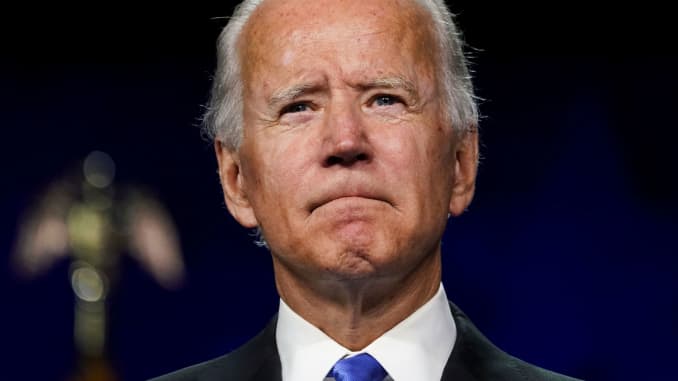President Joe Biden will on Wednesday announce a complete U.S. withdrawal from Afghanistan by Sept. 11, to close the book on America’s longest war.
This was due warning by critics that peace was anything but assured after two decades of fighting.
As officials disclosed Biden’s pullout plans, the U.S. intelligence community renewed deep concerns on Tuesday about the outlook for the U.S.-backed government in Kabul, which was clinging to an eroding stalemate.
“The Afghan government will struggle to hold the Taliban at bay if the coalition withdraws support.
“Kabul continues to face setbacks on the battlefield, and the Taliban is confident it can achieve military victory,” said the U.S. assessment, which was sent to Congress.
Biden planned to announce at the White House on Wednesday that all U.S. troops in Afghanistan would be withdrawn no later than Sept. 11, senior U.S. officials said.
Sept. 11 is a highly symbolic date, coming 20 years to the day of al Qaeda’s attacks on the United States, which prompted then-President George W. Bush to launch the conflict.
The war has cost the lives of 2,400 American service members and consumed an estimated 2 trillion dollars.
The democratic president had faced a May 1, withdrawal deadline, set by his republican predecessor, Donald Trump, who tried but failed to pull the troops out before he left office.
Biden’s decision would keep 2,500 troops in Afghanistan past that May 1, deadline, but officials suggested troops could fully depart before Sept. 11. U.S. troop numbers in Afghanistan peaked at more than 100,000 in 2011.
“There is no military solution to the problems plaguing Afghanistan, and we will focus our efforts on supporting the ongoing peace process,” a senior administration official said.
It remains unclear how Biden’s move would affect a planned 10-day summit about Afghanistan starting on April 24, in Istanbul that is due to include the United Nations and Qatar.
The Taliban, which was ousted from power in 2001 by U.S.-led forces, said it would not take part in any summits that would make decisions about Afghanistan until all foreign forces had left the country.
Critics said the departure plan appeared to surrender Afghanistan to an uncertain fate, something that experts said was perhaps inevitable.
“There is no good way that the U.S. can withdraw from Afghanistan. It cannot claim victory, and it cannot wait indefinitely for some cosmetic form of peace,” said Anthony Cordesman at the Centre for Strategic and International Studies think tank in Washington.
Democratic Senator Jack Reed, chairman of the Senate Armed Services Committee, called it a very difficult decision for Biden.
“There is no easy answer,” Reed said.
U.S. officials can claim to have, years ago, decimated al Qaeda’s core leadership in the region. But ties between the Taliban and al Qaeda elements persist.
By withdrawing without a clear victory, the U.S. opens itself to criticism that a withdrawal is a de facto admission of failure.
The war began as a search for al Qaeda leader Osama bin Laden following the Islamist militant group’s Sept. 11 attacks, when hijackers slammed airplanes into the World Trade Centre in New York City and the Pentagon outside Washington, killing almost 3,000 people.
Bin Laden was killed by a U.S. team of commandoes at his Pakistan hideout in 2011.
Successive U.S. presidents sought to extricate themselves from Afghanistan, but those hopes were confounded by concerns about Afghan security forces, endemic corruption in Afghanistan and the resiliency of a Taliban insurgency that enjoyed safe haven across the border in Pakistan.
Senate Republican leader Mitch McConnell accused Biden of planning to “turn tail and abandon the fight in Afghanistan.”
“Precipitously withdrawing U.S. forces from Afghanistan is a grave mistake,” McConnell said, adding that effective counterterrorism operations require presence and partners on the ground.
Even Biden’s allies in Congress fretted on Tuesday about the impact a withdrawal would have on human rights, given the gains particularly for women and girls in Afghanistan in the past two decades.
The senior administration official said U.S. troops were not the best solution for preserving human rights gains, saying that “aggressive diplomatic, humanitarian and economic measures” are needed instead.

 Health5 days ago
Health5 days ago
 Entertainment7 days ago
Entertainment7 days ago
 Crime6 days ago
Crime6 days ago
 Education1 week ago
Education1 week ago
 Health1 week ago
Health1 week ago
 Comments and Issues6 days ago
Comments and Issues6 days ago
 Football7 days ago
Football7 days ago
 Latest6 days ago
Latest6 days ago

